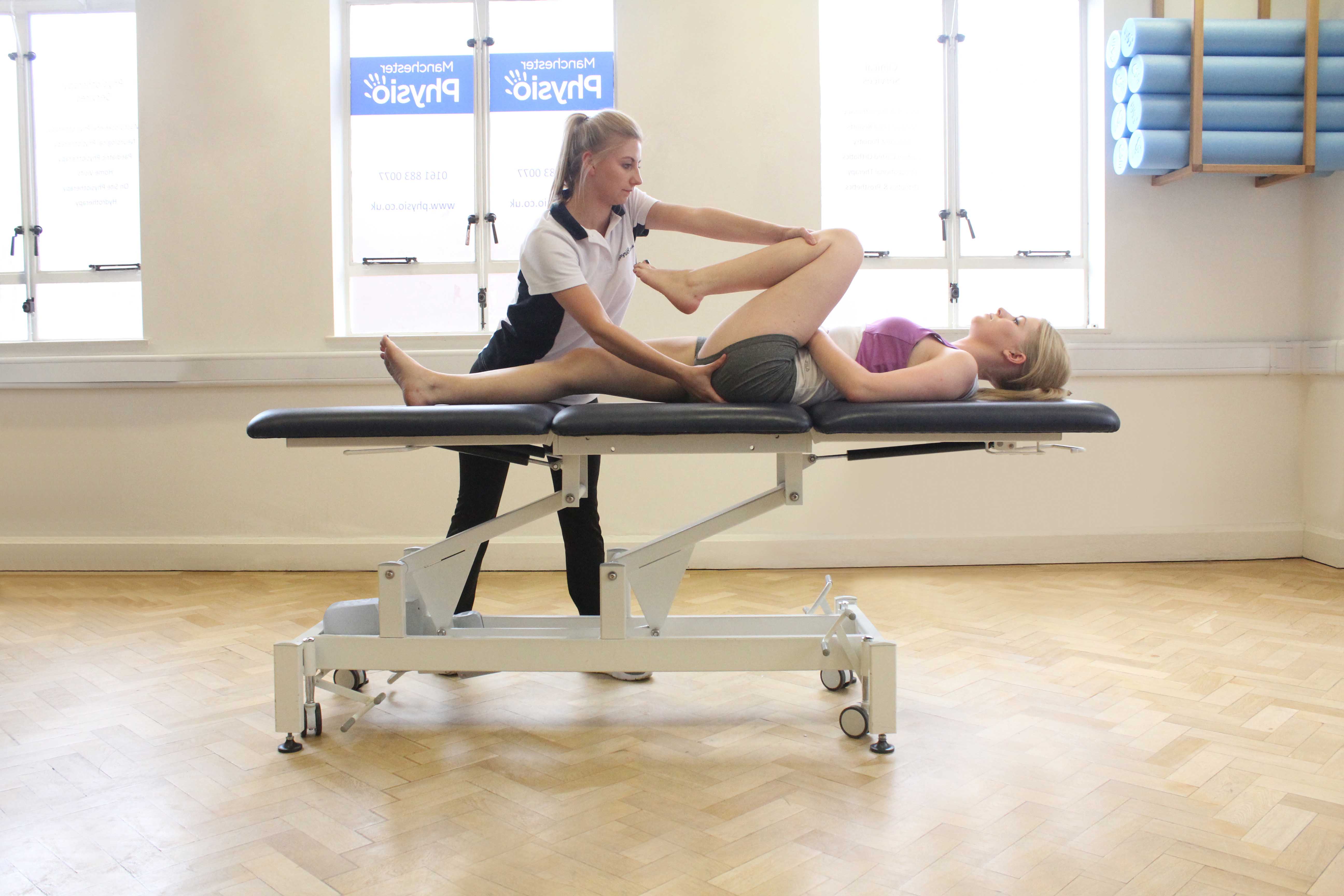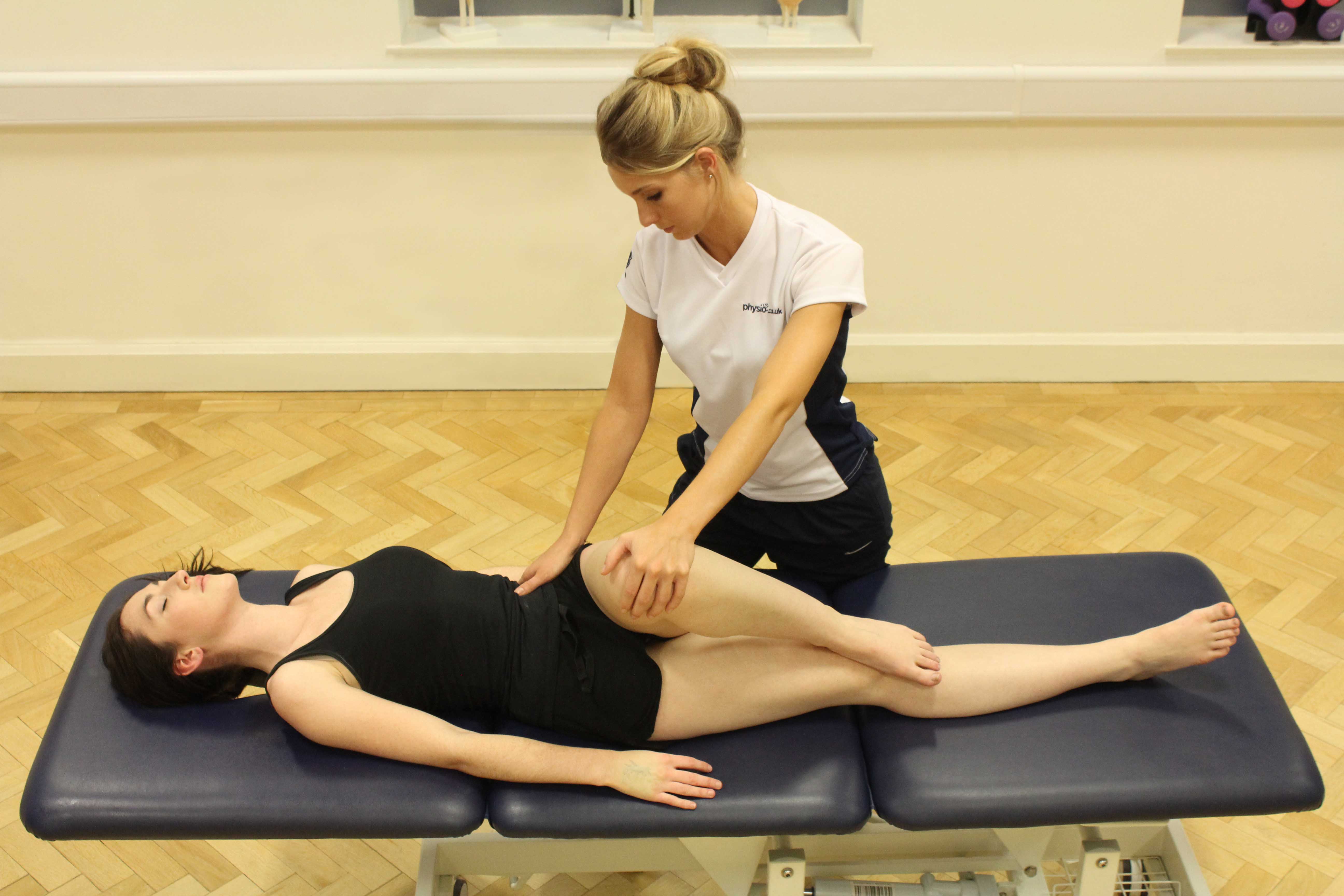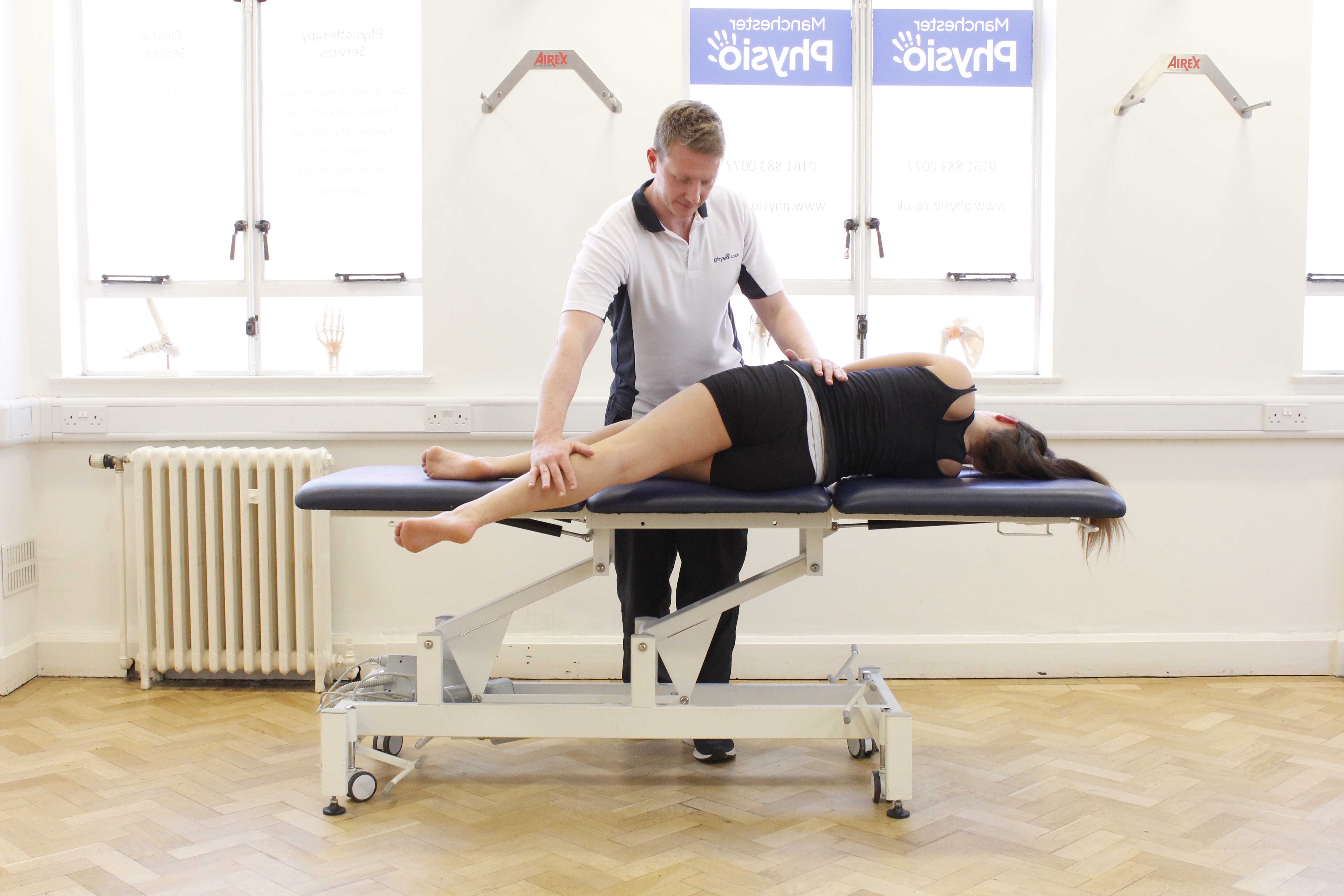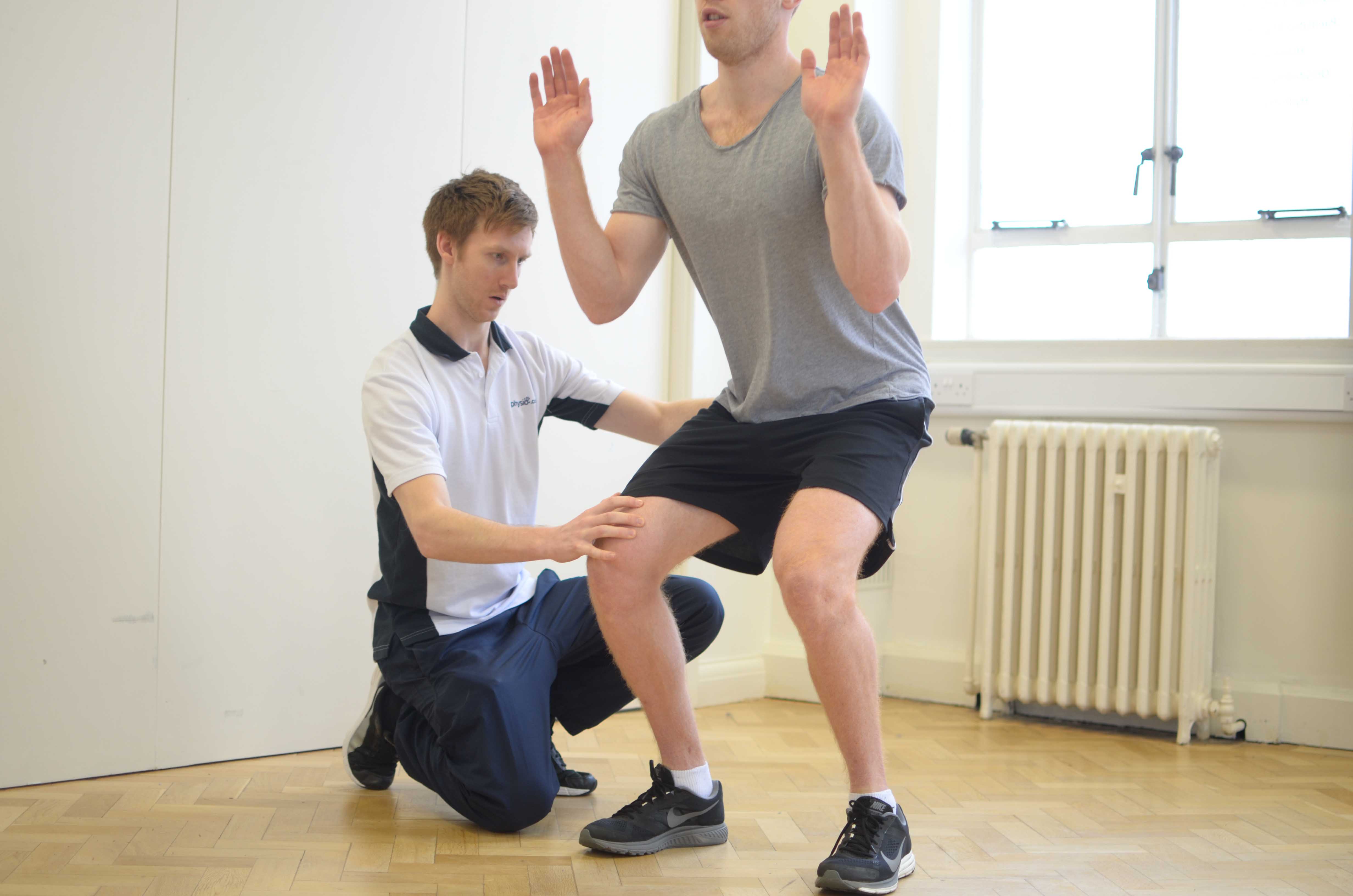- Injury to major nerves
- Damage to internal organs including the intestines, bladder and urethra
- Serious haemorrhaging if nearby major blood vessels are damaged
- A history of a road traffic accident or fall from a height
- You may be in a state of shock due to the large amount of blood loss (hypovolaemic shock)
- Severe abdominal pain
- Cold and clammy skin
- Inability to walk
- Sweating
- A raised heart rate
- Injuries and/or fractures to other areas
Treatment of pelvic fractures
This depends on the type and severity of the fracture. There are a range of treatment options including:
- Conservative (non surgical) treatment for stable fractures includes bed rest to allow healing, physiotherapy, traction (a device used to realign the broken bones) and pain control modalities
- Unstable fractures need to be treated surgically. Most are treated by open reduction internal fixation (ORIF) which realigns the broken bones and metal screws, plates or pins are then used to hold the bones in the correct position.
- External fixators (a metal device outside the body) may be used if the unstable fracture is in a number of areas (comminuted)
Physiotherapy for pelvic fractures
Physiotherapy is imperative following both stable and unstable pelvic fractures. The physiotherapists at Physio.co.uk will include a variety of treatment options in your rehabilitation programme and these will be adapted depending on your goals and individual needs.
For both types of pelvic fractures, physiotherapy at Physio.co.uk will initially concentrate on pain modalities and treatment to reduce any swelling such as cyrotherapy (ice) and elevation based exercises. However, overall the physiotherapy for stable and unstable fractures is very different.
 Above: Passive stretch of the hip and groin muscles by specialist MSK therapist
Above: Passive stretch of the hip and groin muscles by specialist MSK therapistPhysiotherapy for stable pelvic fractures
Stable fractures can be treated conservatively (non surgical) and therefore a comprehensive physiotherapy programme with Physio.co.uk can begin immediately. Treatment options at this point will include:
- Static (isometric) exercises to strengthen the surrounding hip muscles including gluteal, hamstring and quadriceps muscles
- Range of movement exercises at other joints including knee, ankle and foot
- Maintaining upper limb activity
- Soft tissue techniques such as massage and frictions on muscles that may be tight due to bed rest
- Hydrotherapy to increase range of movement and reduce any muscle spasm
- After 4-6 weeks you should be able to gradually return to weight-bearing activities including walking and stair climbing with the appropriate walking aid to suit you (e.g. crutches, zimmer frame)
Physiotherapy for unstable pelvic fractures
Unstable fractures are treated with one of the surgical procedures listed above and physiotherapy rehabilitation will take a lot longer due to the severity of the injury. Your physiotherapist at Physio.co.uk will design a gradual rehabilitation programme designed to meet your chosen goals.
 Above: Passive stretch of the hip and pelvic muscles by specialist MSK therapist
Above: Passive stretch of the hip and pelvic muscles by specialist MSK therapistWeeks 1-2
At this stage, your physiotherapy programme may include the following:
- Cyrotherapy and elevation exercises
- Simple range of movement exercises in all unaffected joints
- Strengthening exercises for surrounding muscles
- Gentle massage on tight muscles
- Pain modalities
Weeks 3-6
You may now be able to gradually begin partial weight-bearing under the supervision of your physiotherapist at Physio.co.uk. Treatment at this stage may include:
- Gradual strengthening and range of movement exercises around the pelvic area
- Partial weight bearing and gait (walking) re-education in parallel bars for support
- Upper limb strengthening and cardiovascular activity
- Continuing with soft tissue techniques such as massage
- Pain and swelling control
- Progress to stair climbing if appropriate
Weeks 7-12
You should now be fully weight-bearing and able to walk longer distances with little pain. During this stage your physiotherapist at Physio.co.uk will be helping you to return to work and your usual hobbies. Your rehabilitation programme will include more specific and functional activities and allow you to gradually return to your lifestyle before your injury.
 Above: Active stretches and mobilisations of the groin and pelvic muscles with supervision from a MSK therapist
Above: Active stretches and mobilisations of the groin and pelvic muscles with supervision from a MSK therapistSummary
Pelvic fractures result from a high energy injury or a fall from a great height. They can be categorised as stable or unstable fractures depending on whether the pelvic ring has been disrupted. Physiotherapy is essential following either type of fracture and an effective recovery is likely if you adhere to a comprehensive programme. The specialist physiotherapists at Physio.co.uk can design an appropriate rehabilitation programme specific to your goals in order to optimise your recovery. Please call Physio.co.uk on 0330 088 7800 to book an appointment today!
 Above: Passive stretch of the hip and pelvic muscles by specialist MSK therapist
Above: Passive stretch of the hip and pelvic muscles by specialist MSK therapist
 0330 088 7800
0330 088 7800


































